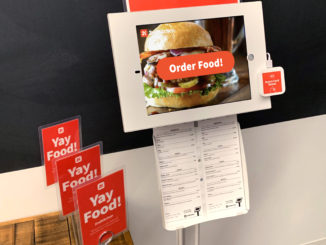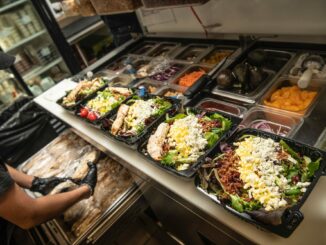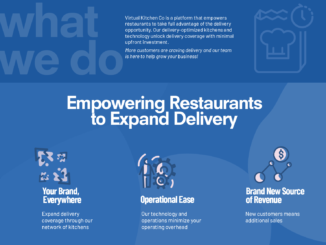
By Debbie Carson, Associate Editor
The virtual kitchen Keatz, which is actually comprised of nearly a dozen virtual kitchens, is the latest player in this fast-growing category to secure big funding, raising approximately $13.5 million. This latest round brings the total amount raised for the Berlin, Germany-based company to approximately $22 million.
The company, which bills itself as the “largest community of virtual restaurants,” operates a network of virtual kitchens designed specifically for delivery order fulfillment, with customers placing orders online or via an app on their mobile device. Offering eight different “brands” out of its shared kitchens, Keatz’s menu items are available for delivery through multiple services, including Deliveroo, Uber Eats, Glovo, Just Eat, Delivery Hero, Takeaway and Foodora. Keatz offers food items that it deems to be well-suited for delivery by car or bicycle.
The culinary options range from vegan cuisine to Thai curry to Hawaiian poke and Mexican burritos. The company has its own soup brand and also offers a variety of salads and wraps, which apparently travel well.
Currently, all of Keatz’s virtual kitchens are located in Germany, the Netherlands, and Spain. But that may be not be the case for much longer as the company looks to expand its operations overseas.
Launched in 2016, Keatz is hardly the first virtual kitchen to hit the scene. Many other startups have jumped on the virtual restaurant bandwagon over the past couple of years, with varying degrees of success.
ClusterTruck, with locations in Indiana, Ohio, Kansas City and Denver, operates a virtual kitchen with an extensive menu of meals that it prepares and delivers through its own delivery fleet. The Indianapolis-based company has raised $10 million in funding. Taster (formerly known as Mission Food), headquartered in France, is another good example of a virtual kitchen. The company has raised more than $5 million to date for its takeaway and delivery-only food brand.
Startups that include Green Summit Group, which has “commissary kitchens” in New York City and Chicago, and CloudKitchens launched collectives of virtual kitchens in the United States over the past couple of years.
California-based Kitchen United, which appears to be growing by leaps and bounds, rents space to restaurants with the express purpose of preparing and delivering online food orders, offering them “a turnkey, capital-light way to expand their reach to the off-premise diner.” And last month, as reported here, Chicago-based 2ndKitchen, a technology solution that enables businesses without a kitchen to serve food seamlessly using a custom menu from nearby restaurants, secured funding to expand its operations.
Even delivery companies are starting to get into the game, particular in Europe. Earlier this month, Uber announced that it would be piloting a virtual kitchen concept in Paris. Deliveroo has operated its own virtual kitchens in Europe for more than a year.
In the United States, the market for food delivery is projected by industry analysts to reach almost $16 billion by next year. No wonder the funding is flowing like water in those virtual kitchens.
The Keatz model differs from some other variations on the theme. Rather than partner with existing restaurants, the company maintains its own portfolio of restaurants designed for deliver-only. The company is also unique in that it has adopted a hub-and-spoke approach to meal preparation. All meals are prepared, and even cooked, in a centralized kitchen. the meals are then shipped frozen to distribution kitchens in various strategic locations.
The virtual kitchen concept, which combines next-generation restaurant technology and business models with good old-fashioned food preparation and delivery, is all the rage, backed by many tens of millions of dollars in venture capital. While there is little doubt that consumers will continue to order up food for delivery, it’s less certain which virtual kitchen models will be successful in the long run and which ones will ultimately fail to deliver.




